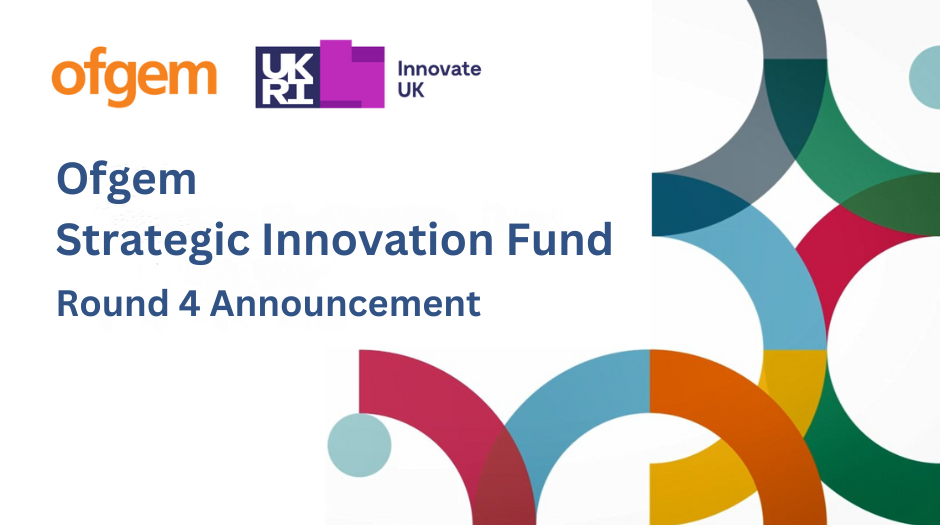Innovate UK Women in Innovation Programme Outrage
The recent Innovate UK Women in Innovation outcome has drawn significant attention, particularly after Innovate UK's failure to deliver on its funding promises for women-led projects. The initiative, which began in 2016, aims to foster female entrepreneurship by offering financial support and mentorship. However, the most recent round of awards has been mired in controversy, as only 25 applicants were going to receive funding instead of the promised 50, sparking backlash and concerns about Innovate UK's commitment to gender equality.
Women in Innovation Background
Women in Innovation was designed to address the gender disparity in the UK's innovation sector, aiming to support women entrepreneurs and innovators with financial resources and expert mentorship. It has played a crucial role in fostering female participation in a traditionally male-dominated field. Innovate UK has been credited with increasing the representation of women innovators, noting that successful grant applications from women have risen from 1 in 7 in 2016 to 1 in 3 in recent years.
The program’s focus on creating opportunities for women to grow and scale their businesses has been widely welcomed. However, in the 2024 iteration of the program, the initiative drew significant criticism when Innovate UK announced only 25 of the originally promised 50 projects would receive funding. This decision, seen as a significant misstep, left many applicants feeling unsupported and cast doubt on the future of gender equity in UK innovation. The shortfall in funding not only affected the individual businesses hoping for support, but also raised broader questions about how resources are allocated and the priorities of public funding bodies like Innovate UK.
Innovate UK’s Response and Proposed Measures
This situation prompted Innovate UK to acknowledge their mistake. They admitted that their decision to prioritise fewer projects was wrong and issued a public apology, recognising the negative impact this had on applicants and the larger innovation community. Innovate UK also confirmed that they would fund the remaining 25 projects, thus meeting their original commitment of 50 awards with a total investment of £4 million.
In the face of mounting criticism, Innovate UK has laid out a series of measures aimed at rectifying the situation and ensuring that such mismanagement does not happen again. Their response has been characterised by transparency and an effort to rebuild trust with stakeholders. They have committed to fully funding the 50 projects as originally promised, stating that they are already in the process of contacting the additional 25 successful applicants.
To further demonstrate their commitment to supporting women in innovation, Innovate UK has promised to reach out to all applicants to provide information on additional support and resources available to them. This includes highlighting various services within the broader Innovate UK system, such as the Innovate UK Catapult Network and Business Connect, which are designed to help innovators at different stages of their entrepreneurial journeys.
Innovate UK has also pledged to improve its strategic engagement with business leaders and gender equality advocates to better understand the needs of women innovators and create new opportunities for them. They are working on refining their internal processes and co-creating new programs that will expand the support available to women in innovation.
Rebuilding Trust and Accountability
While Innovate UK’s quick response and admission of fault are positive steps, the scandal has emphasised the importance of accountability in public funding. There is now greater pressure on Innovate UK to ensure that such mistakes are not repeated. By reaffirming their commitment to gender equality and promising to deliver on their initial funding promises, Innovate UK is attempting to restore its credibility within the innovation community.
Moving forward, Innovate UK will need to demonstrate that it has learned from this controversy. Its plan to co-create opportunities with business leaders and advocates, alongside improving transparency and funding processes, is critical to regaining the trust of the community it serves. Gender equality advocates are also calling for increased oversight to ensure that public funds are managed responsibly and that women innovators receive the support they need to succeed.
Broader Implications for Women in Innovation
This scandal (for this author, who has been watching too much Bridgeton) has highlighted the broader challenges that women face in the innovation sector. While initiatives like Women in Innovation are crucial for addressing gender disparities, they must be backed by consistent and reliable support. The Innovate UK funding shortfall serves as a reminder that efforts to close the gender gap in innovation require more than good intentions - they demand effective execution and follow-through.
The fact that applications for this year’s Women in Innovation program reached an all-time high (1,452 applications) is a positive sign that more women are seeking opportunities in the innovation sector. However, with only 50 projects being supported at a maximum grant of £75,000 each, the lack of funding threatens to undermine this progress and further delay and/or disruption women entrepreneurs and their business plans, which could have long-term implications for their success.
Innovate UK's Innovation Loan Programme
Empowering SMEs for Future Growth
Innovate UK's Innovation Loan programme is aimed at supporting micro, small, and medium-sized enterprises (SMEs) with late-stage research and development (R&D) projects that demonstrate high innovation potential and significant future economic impact. This initiative provides up to £25 million in loans to help these businesses bridge the gap between R&D and commercialisation.
Overview of the Programme
The Innovation Loan programme is designed for SMEs registered in the UK, focusing on projects that are significantly ahead of current market offerings or utilise existing products, processes, or services in innovative ways. The loans range from £100,000 to £2 million, with the expectation that projects will commence by April 1, 2025. The programme aims to support a variety of sectors, emphasising themes such as Net Zero, health and wellbeing, next-generation digital technologies, and advanced manufacturing.
Eligibility Criteria
To qualify for the loan, businesses must:
- Be a UK-registered micro, small, or medium-sized enterprise.
- Conduct and exploit their project within the UK.
- Demonstrate the need for public funding and the ability to repay the loan on time.
- Provide evidence of their business's suitability to handle a loan.
Notably, individuals, large companies, non-profits, academic institutions, and research organisations are not eligible. Collaboration is not funded, but subcontractors are allowed, if justified.
Project Requirements
Eligible projects should:
- Lead to the development of innovative new products, processes, or services.
- Include prototyping, demonstrating, piloting, testing, or validation in real-life conditions.
- Align with one or more future economy areas specified in Innovate UK's plan for action.
The programme encourages applications from underrepresented communities, including those outside major investment hubs and from diverse backgrounds.
Application Process
The application process is comprehensive, consisting of three main sections: business and financial details, project questions, and project finances. The application is evaluated based on the quality of the project and the business's ability to manage and repay the loan.
Applicants must also address specific project aspects, including:
- The business need, technological challenge, or market opportunity.
- The market potential and commercialisation plan.
- The team’s skills and project management strategy.
- Detailed project costs and financial planning.
Submissions are reviewed by independent experts and Innovate UK’s credit team. Successful applicants will proceed to detailed credit analysis and final lending decisions.
Key Dates
The programme operates through multiple rounds:
- Round 16: Opens on 27th June 2024, and closes on 21st August 2024.
- Round 17: Opens on 22nd August 2024, and closes on 2nd October 2024.
- Round 18: Opens on 3rd October 2024, and closes on 3rd December 2024.
- Round 19: Opens on 3rd December 2024, and closes on 29th January 2025.
Financial Terms
Innovation loans are structured with favourable terms:
- Availability Period: Up to three years with loan drawdowns and interest at 3.7% per annum.
- Extension Period: Up to two years, focusing on commercialisation with deferred interest.
- Repayment Period: Up to five years with quarterly repayments and a 7.4% interest rate.
Security is generally in the form of a debenture, with no personal guarantees required. Loans cover up to 100% of eligible project costs, with the equivalent benefit of a grant due to below-market interest rates.
What Next?
For a free consultation to discuss your project, contact RedKnight today.
Immersive Technology in Mental Health
Innovate UK’s £20 million Mindset programme is driving the growth of immersive digital mental health solutions in the UK.
A series of events are planned around the UK where you can find out more about funding opportunities, and the Mindset-XR Innovation Support Programme delivered by Health Innovation Network (HIN) South London.
These events are a great opportunity to:
- Hear from innovators in this exciting and developing field and learn more about why this is important for mental health services.
- Meet some of the current Mindset-XR award winners and XR innovators.
- Hear about upcoming funding for Mindset-XR Round 3.
Who should attend? Anyone interested in mental health and immersive technology, including but not limited to:
- immersive tech companies
- clinicians
- researchers /academics
- innovators
- regulatory/ legal organisations
- voluntary sector
- creatives with an interest in mental health
- people with lived experience
The events are taking place in the follow cities:
- Leeds - 25th June
- Glasgow – 27th Jun
- London – 2nd July
- Cardiff – 8th July
- Exeter – 19th July
To register your attendance, please click here.
UK-Canada: £3m Biomanufacturing Fund
Innovate UK is partnering with the National Research Council of Canada Industrial Research Assistance Program (NRC IRAP) to invest up to £3 million in innovative biomanufacturing projects. This initiative, part of the Canada-UK: Biomanufacturing of Biologics and Advanced Therapies Round 2, aims to propel the development and implementation of cutting-edge technologies in biomanufacturing, fostering flexibility and technical capabilities essential for the sustainable production of next-generation vaccines and therapies.
Goals and Objectives
The primary goal of this competition is to stimulate technological advancements in biomanufacturing. By encouraging bilateral research and development (R&D) collaborations, the initiative seeks to position both the UK and Canada to effectively respond to future health emergencies. Proposals must focus on innovative technologies that enable flexible, scalable, efficient, and cost-effective manufacturing of novel biological therapeutic products and delivery systems. Moreover, projects must demonstrate a high potential for commercialisation, emphasising the economic viability and practical application of the proposed technologies.
Focus Areas
Projects can focus on various areas, including:
- Enabling technologies for biologics and advanced therapeutics
- Delivery systems for proteins and nucleic acids
- Novel biological products (e.g. vaccines and therapeutic proteins).
The competition seeks a portfolio approach, funding a diverse array of projects across different technologies and themes.
Competitive Application Process
Participation in this competition entails entering a competitive process. The deadline for applications is Wednesday 26th October 2024, closing at 11am UK time/ 9am PDT/ 12pm EDT).
For Canadian applicants, registration and submission of an Expression of Interest (EoI) by 2nd July 2024, are prerequisites for eligibility. Only Canadian micro, small, or medium-sized enterprises (SMEs) can apply, and failure to complete an EoI disqualifies them from funding.
UK participants must be part of an application submitted to Innovate UK, while their Canadian counterparts submit a parallel application to NRC. Both applications are reviewed independently by Innovate UK and NRC, with funding decisions made jointly. Successful projects must secure grant funding from both Innovate UK and NRC to proceed.
Project Criteria
Eligible projects must request no more than £600,000 for UK organisations and no more than CA$1 million for Canadian partners. Projects should start by 1st April 2025 and conclude by 31st March 2027, lasting between 12 and 24 months. Importantly, projects must commence on the first of the month, as reflected in the grant offer letter.
Balanced Collaboration and Commercial Exploitation
Collaborative projects must involve at least one UK registered SME and one Canadian incorporated SME, with a balanced distribution of total eligible project costs among partners. Projects should predominantly take place in the UK and Canada, aiming for a balanced contribution of efforts and resources. Additionally, proposals must clearly outline the intention to commercially exploit the results, either domestically or globally.
Restrictions and Compliance
Under current restrictions, the competition will not fund any procurement, commercial, business development, or supply chain activity involving Russian or Belarusian entities. Furthermore, all project costs included in the application must be eligible under the specified guidelines.
Leading and Partnering Organisations
To lead a project, the organisation must be either a UK registered business of any size or a Canadian incorporated, profit-oriented SME. The collaboration must involve at least three eligible, grant claiming organisations (1 from Canada and 1 from the UK, with at least 1 more from either the UK or Canada). Each UK partner organisation must be invited into the Innovation Funding Service (IFS) by the lead to collaborate on the project.
Subcontractors and Non-Funded Partners
The competition allows for subcontractors, with UK subcontractor costs limited to no more than 20% of the organisation's total eligible costs. Subcontractors can be from the UK and Canada, and the use of subcontractors from other countries requires a detailed rationale.
What To Do Next?
For a free consultation to discuss your project further, contact RedKnight today.
£8m Smart Shipping Acceleration Fund
Smart Shipping Acceleration Fund: The UK's £8 Million Green Initiative
Innovate UK, in collaboration with the Department for Transport (DfT), is spearheading an ambitious initiative to invest up to £8 million in innovation projects designed to reduce greenhouse gas (GHG) emissions and improve air quality in shipping and port operations. This commitment is not just about preserving the environment but also about positioning the UK at the forefront of maritime technology and sustainable development.
The Drive Towards Sustainable Maritime Technology
The primary goal of this competition is to support detailed feasibility studies that explore innovative technology demonstrations of scalable smart shipping technologies. These technologies are expected to make significant strides in reducing emissions and enhancing air quality. From on-vessel systems to port infrastructure improvements, the scope of potential innovations is vast and varied, encompassing everything from energy efficiency to data-driven operational enhancements.
Applicants are invited to propose projects that combine technical and economic feasibility studies related to the development and demonstration of these cutting-edge technologies.
Competition Requirements and Scope
Projects eligible for funding must have total costs ranging from £75,000 to £750,000 and should be completed within a five-month period (1st November 2024 to 31st March 2025). All project activities must be carried out within the UK, with a clear intention to exploit the results domestically, emphasising the competition's role in boosting local innovation and economic growth.
The competition is comprehensive in its reach, targeting all sizes and categories of maritime vessels, from pleasure crafts to commercial giants, as well as various infrastructures, including ports, harbours, and offshore installations like wind farms.
Innovation Themes and Project Expectations
Participants are encouraged to focus on several key areas:
- Vessel Optimisation and Smart Efficiency Technologies: Enhancing the operational efficiency of ships through innovative solutions.
- Autonomous Vessels and Subsystems: Developing control systems and sensors that facilitate autonomous maritime operations.
- Smart Port Operations: Utilising digital tools to optimise port and shipyard operations, including smart route planning and emissions monitoring.
Projects must demonstrate a potential for significant reductions in GHG emissions or improvements in air quality. They are expected to result in a robust plan for real-world demonstrations by the end of 2027, detailing the technical approaches, objectives, and business cases.
Collaboration and Regulatory Compliance
Successful projects will require collaboration with a range of stakeholders, including vessel operators, port authorities, and potentially, the Maritime and Coastguard Agency (MCA). Compliance with existing and future regulations will be paramount, as will engagement with DfT, Innovate UK, and any third-party contractors involved with the Smart Shipping Acceleration Fund.
Intellectual Property and Economic Impact
A clear strategy for commercializing the technology is crucial. Projects must not only anchor Intellectual Property (IP) within the UK but also outline how this IP will benefit the national supply chain long-term. The competition encourages participants from across the UK to contribute to job creation and economic expansion, particularly in regions with existing maritime expertise.
For a free consultation to discuss your project idea, contact us today.
£5m Available for UK/Taiwan Collaborative Innovation
Innovate UK in collaboration with Taiwan's Department of Industrial Technology (DoIT), has announced a new funding opportunity aimed at fostering international cooperation in industrial research. With up to £5 million available for innovation projects, this initiative seeks to unite UK and Taiwanese expertise to drive technological advancements and commercial success in several cutting-edge sectors.
Competition Overview
This funding competition is designed to support collaborative research and development (CR&D) projects that are business-led and focused on creating new products, services, or industrial processes. Projects must be innovative, involve technological risk, and demonstrate high market potential. Importantly, each project must include at least one partner from the UK and one from Taiwan, with funding for UK participants provided by Innovate UK and for Taiwanese partners by DoIT.
Key Sectors and Technologies
The competition prioritises projects in several high-impact sectors, reflecting the latest trends in technology and market demands:
- Smart Technology: This includes next-generation communication technologies, semiconductor technology, and advancements in space technology.
- Green Energy Technologies: Focus areas include electric vehicles, hydrogen transportation, renewable energy solutions, future grids, and carbon capture, utilization, and storage.
- Smart Manufacturing: Enhancing automation and digital integration in manufacturing processes.
- Biotechnology: Projects might involve the development of medical materials and devices that can transform healthcare.
- Service Innovation: This sector encompasses the Internet of Things (IoT), Big Data, Artificial Intelligence, and the latest in telecommunications standards, 5G and 6G.
Funding and Project Details
This competition closes at 11am (UK time) on the 17th July 2024. UK applicants can apply for a grant of up to £900,000 per project. Each project must:
- Request no more than £900,000 in grant funding.
- Start by January 1, 2025, and conclude by December 31, 2027.
- Last between 24 and 36 months.
- Perform the majority of their project work in the UK and plan to exploit the results domestically.
Consortium Requirements
Each consortium must include at least one business registered in Taiwan and ensure that all businesses are separate legal entities. This stipulation is key to fostering genuine collaboration across borders, as opposed to facilitating internal company research. The contribution of project costs must be balanced, with no single partner or country claiming more than 70% of the total project costs.
Innovation and Impact
Projects must demonstrate:
- A clear, disruptive innovative idea leading to new products, processes, or services.
- A robust business plan with documented market potential.
- Practical financial plans with clear timelines.
- Good value for money, which is a critical consideration in funding decisions.
- A plan to deliver significant economic impact and growth through commercialization soon after project completion.
- The benefits of UK and Taiwanese collaboration, detailing how international cooperation adds value.
- A well-defined IP strategy for the use and sharing of intellectual property created during the project.
- A clear route to market within two to three years of project completion.
What Next?
For a free consultation to discuss your project’s fit with the competition, please contact RedKnight today.
Pioneering Digital Transformation in UK Energy Networks
Innovate UK is investing £1.2 million dedicated to fostering collaborative projects that focus on the development of digital twins, enhancing data interoperability, and boosting cyber resilience across the nation's energy infrastructures.
This initiative is part of the broader "Building a Secure Resilient World" programme (BSRW), which aims to safeguard the critical infrastructure that powers our daily lives. The primary goal of this competition is to strengthen the cyber resilience of the UK’s energy networks through advanced digital solutions, particularly by supporting the creation and integration of digital twins.
What is a Digital Twin?
A digital twin is a digital replica of a physical entity, system, or process that can be used for simulation, analysis, and optimisation. This technology allows for detailed insight into the operation and potential vulnerabilities of energy networks, offering significant opportunities for improvement in both efficiency and security.
Competition Details and Requirements
The competition invites proposals that:
• Develop, support, or deliver digital twins within energy networks.
• Significantly improve the cyber resilience of these networks.
• Enhance the quality and interoperability of data across energy networks.
• Engage end-users throughout the development process and demonstrate testing in real-world conditions.
Eligible projects may also:
• Enable the development of digital twins specifically for energy networks.
• Improve the resilience of systems, technologies, data, and information within these networks.
• Foster increased collaboration among SMEs, energy networks, and researchers.
• Deliver products, services, or solutions with potential for commercialization.
• Help achieve the objectives of the UKRI’s BSRW programme.
Who Can Apply?
Applications are welcomed from SMEs specialising in:
• Cybersecurity
• Data interoperability
• Operational technologies
• Analytics and digital twins
SMEs from outside the energy sector are particularly encouraged to apply, highlighting the competition's focus on bringing innovative perspectives and technologies into the energy domain.
Funding Scope and Project Eligibility
The competition closes at 11am on 24th May 2024. Eligible projects should request grant funding between £100,000 and £300,000 and must be completed within 6 to 12 months. All project activities must occur within the UK, and the results must be exploited domestically. The projects should be ready to commence by 1st October 2024, and wrap up by 30th September 2025.
Alternative Funding and Competition Dynamics
Applicants are encouraged to explore other funding avenues, such as the OFGEM SIF competition, to maximize their potential sources of support. It’s crucial to understand that this competition is highly competitive, and funding is limited. Even highly scored projects may not secure funding if the available resources are exhausted.
What Next?
For a free consultation to discuss your project’s fit with the competition, contact RedKnight today.
Ofgem Strategic Innovation Fund (SIF) Round 4 Challenges
The Strategic Innovation Fund (SIF) is an Ofgem programme managed in partnership with Innovate UK. Its purpose is to support energy network innovation that will help achieve Net Zero rapidly and at lowest cost; deliver real net benefits to energy network users and consumers; and help the UK to become a 'Silicon Valley' of energy. The next round of SIF is being launched next week, with 4 new targeted innovation challenges.
Innovators will be invited to submit an Expression of Interest (EoI), outlining their idea to address the challenges. The EoI stage will give Innovate UK an opportunity to engage innovators in developing ideas before submission into the Call for Ideas; opening on Innovate UK’s Innovation Funding Service portal on 1st May 2024.
Successful ideas will have an opportunity to pitch their idea to the energy networks. Networks will then invite the most suitable pitches to partner with them to develop their idea further, with the aim of applying to the Discovery phase of Round 4.
Innovate UK will be hosting two introductory webinars to give a more in-depth view of the new challenges and explain next steps on how to get involved in this exciting new round of the SIF:
- Thursday 7 March @ 11:00 am
- Friday 15 March @ 9:00 am
You can register your attendance for the Round 4 Challenges Launch Webinars to ensure you are informed of the new challenges.
UK Research and Innovation's Leap into Open Access: Empowering Knowledge Sharing
In a landmark move, UK Research and Innovation (UKRI) ushers in a new era of academic openness. From January 2024, its comprehensive open access policy extends to monographs, book chapters, and edited collections, revolutionising the dissemination of scholarly work. This paradigm shift in knowledge sharing aligns with the growing global mandate for open access, marking a significant evolution in academic publishing.
Building on its 2022 policy for peer-reviewed research articles, UKRI now includes a broader range of academic outputs under its open access umbrella. The policy ensures that research funded by UKRI, a critical financier in the UK's academic landscape, is freely accessible to everyone. This democratisation of knowledge aims to accelerate scientific discovery and innovation by removing traditional barriers to information access.
The policy is a response to the scholarly community's call for more equitable access to research findings. It reflects a fundamental change in how research is shared, promoting transparency and collaboration across disciplines. The inclusion of monographs and book chapters is particularly notable, as these forms of academic outputs have historically been less accessible due to cost and distribution limitations.
The implications of this policy are far-reaching. For academics, it represents an opportunity to increase the visibility and impact of their work. Students, educators, and researchers worldwide stand to benefit from unrestricted access to a wider array of scholarly materials. This could particularly benefit those in developing countries, where access to academic literature is often limited. For the private sector, it will enable translation of research into innovative products, processes, and services to aid economic growth and job creation.
The response from the academic community has been largely positive, with many viewing it as a progressive step towards a more inclusive and collaborative research environment. However, there are also concerns about how this transition will be funded and managed, particularly regarding the financial implications for researchers and publishers.
UKRI's expansion of its open access policy marks a pivotal moment in academic publishing. By embracing open access, UKRI is not just enhancing the visibility of UK research but also contributing to a global movement towards a more accessible and equitable knowledge economy. While challenges remain, particularly in implementation and sustainability, the potential benefits of this policy for the global research community are immense. As this policy takes effect, it paves the way for a future where knowledge is a shared and accessible resource, fostering innovation and understanding across borders.









